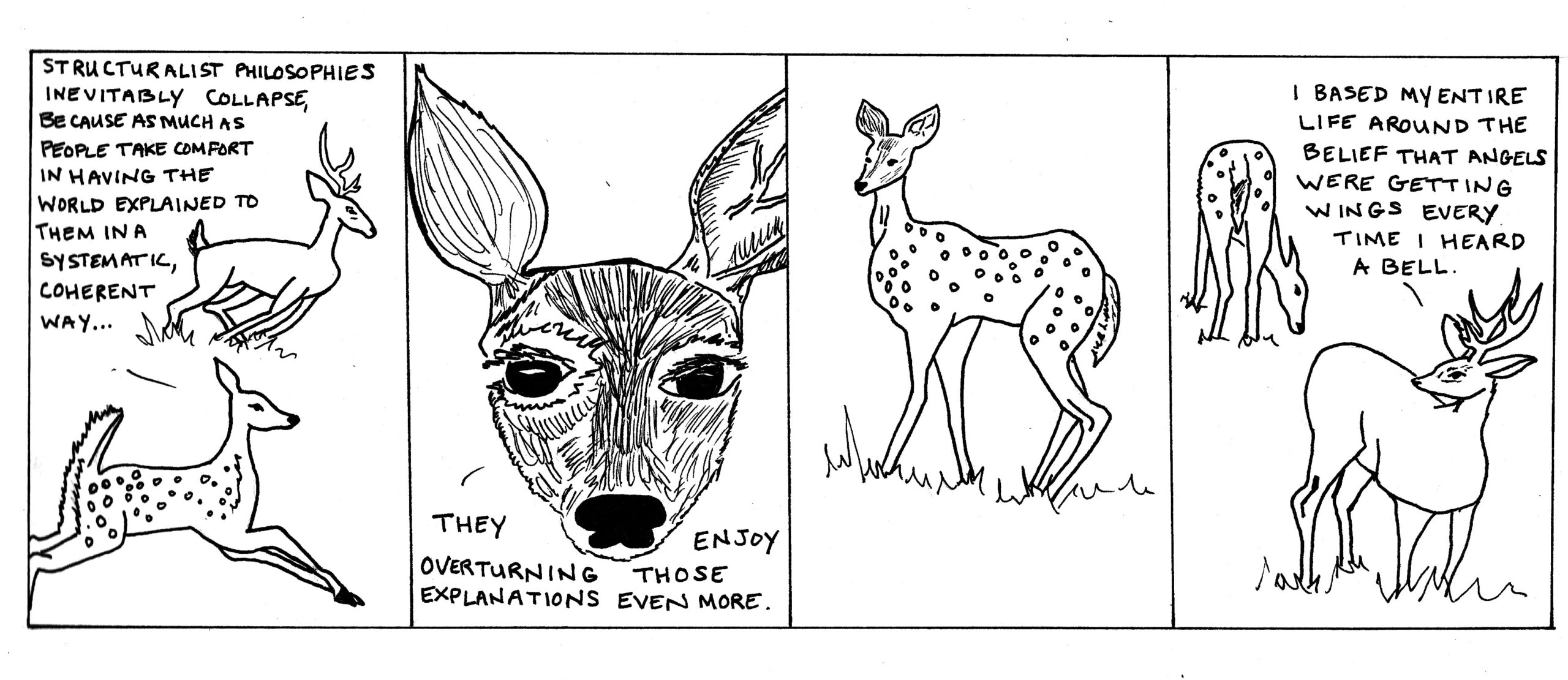Imagine how soothing it would be for all the wheels and cogs in your head to spin, click, spin slowly together until their every working was suddenly harmonic. Imagine how tenaciously you would cling to an explanation that made sense: not just an explanation of yourself, but of the world. Of everything. Of why it all happens.
Freud and Marx are the easiest figures to poke fun at, if you’re interested in post-structuralism*. This is, I think because (ok, ok, in addition to being the major structuralist players) they are both people who rejected the systematization of religion, but still managed to be utterly convinced that they’d sketched out a picture of the Great Divine. And that’s funny! Look how Above It All the scientists are!
(Um, not that we are counting Freud or Marx as scientists, technically.)
I think one reason that I find post-structuralist theory appealing is that all the systems of thought I’ve ever been truly invested in (aesthetics, French feminism, general craft theory of fiction) have escape hatches. Let’s take the craft of fiction as an example. I can fanatically invest in Edith Wharton’s ideas about writing, as reproduced here by Roxanne Gay: find them helpful, insightful, inspiring. But Wharton herself warned against following any particular artistic “rules” (and rightly so):
“General rules in art are useful chiefly as a lamp in a mine, or a handrail down a black stairway; they are necessary for the sake of the guidance they give, but it is a mistake, once they are formulated, to be too much in awe of them.”
That’s how I like my theories of the universe: an unfinished map; a suggestion within a story; a wink and an invitation to try it myself.
*Note: if you want, a simplified definition of structuralism (taken, of all places, from Wikipedia, who is taking it from Deleuze): “Proponents of structuralism would argue that a specific domain of culture may be understood by means of a structure—modelled on language—that is distinct both from the organizations of reality and those of ideas or the imagination—a “third order.” So for Marx, the structure of society is based on economics and the eventual revolution of the proletariat. For Freud, all human action can be explained by sex and the subconscious. (NB: please don’t hold me to rigorously to this definition: I’m intentionally using broad strokes.) Post-structuralism then, is (again, in a really broad stroke) the theoretical deconstruction of structuralist thinking. I.e. Freud says, “It’s all sex,” and a post-structuralist says, “No it isn’t, and you’re kind of a twit to say so. But an interesting twit.”
